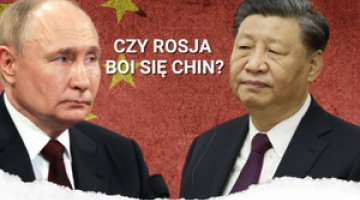The Islamic State in the Caucasus – who benefits?
In the second half of December 2014, there was a split within the ranks of Islamic militants fighting in the North Caucasus under the aegis of the Caucasus Emirate. Several high-ranking commanders from Dagestan and Chechnya declared their allegiance to Emir Ali-Askhab Kebekov (a.k.a. Ali Abu Muhammad) and swore an oath to Caliph Ibrahim, the self-proclaimed leader of the Islamic State (IS). These events will lead to a serious weakening of the Caucasus Emirate and the emergence of armed groups in the Caucasus which formally recognise the sovereignty of the IS, but will actually act independently. While there is no risk of an outbreak of large-scale armed conflict, the likelihood of a new wave of terrorist attacks in Russia and a brutalisation of the Caucasus’s Islamic guerrillas actions is now greater. At the same time, the emergence of groups in the Caucasus declaring allegiance to IS offers Moscow new opportunities on both the domestic and international stages. In addition to manipulating the warring Islamic groups, the presence of pro-IS fighters and an increase in the threat of terrorism may facilitate the pacification of social discontent in Russia during the economic crisis. The Kremlin can also exploit these factors to break its international isolation by creating the impression that Russia is the West’s ally in the fight against the threat from the Islamic State.
Emirate versus caliphate
The series of declarations of obedience to the Emir of the Caucasus and the swearing of oaths to the Islamic State was initiated by Suleiman Zaynalabidov, a local commander from Dagestan (the emir of the so-called Aukh Jamaat), who swore allegiance to the Caliph in mid-November 2014. Although in all probability the recording published online had been fabricated by the special services (as it turned out, Zaynalabidov had been arrested a few days earlier by the Russians, and read the statement from written notes in a trembling voice; this may suggest that the split within the emirate was inspired by the FSB), several high-ranking commanders of Dagestan and Chechnya have followed in his footsteps (including Rustam Asilderov, the Dagestani militant leader and commander of militants operating in Khasavyurt, Makhachkala, southern Dagestan and eastern Chechnya). This abjuration of obedience caused a major crisis in the Emirate; it was condemned by the chief emir (who deprived the rebels of all their offices, and called them traitors) and the emirate’s sharia judge. Several other commanders (from Dagestan and Kabardino-Balkaria) declared their fealty to the Caucasus Emirate, as did Caucasian troops fighting in Syria and allied with the an-Nusra Front organisation (the Syrian branch of al-Qaeda). The oath to the Caliph did not meet with any response from the Islamic State itself, however. The only reaction came from those Caucasian militant leaders who are already fighting in the ranks of the Islamic State (particularly their ‘spokesman’ Islam Atabiyev, who comes from Karachay-Cherkessia and is also known as Abu Jihad; he is the right-hand man of the Georgian Chechen Tarkhan Batirashvili, a.k.a. Omar Shishani, the chief commander of IS in Syria); they have called upon all the fighters in the Caucasus to swear the oath to the Caliph.
The split in the emirate’s ranks is the result of months of growing internal crisis within the organisation. As a result of large-scale, brutal actions by the Russian security forces, the militants regularly suffer big losses. They lack the money, weapons and supplies, and have also been having difficulties in maintaining secrecy. Another major problem was the weakening authority of the emirate's leader, Ali-Askhab Kebekov, who was unable to secure external funding; took decisions which were unpopular with the militants (such as prohibiting terrorist attacks on civilian targets and women’s participation in the group’s military-terrorist actions); and did not initiate any truly spectacular military actions (as the ideological and not the military leader, he focused on the theological aspects of jihad, and not armed struggle). At the same time, Kebekov sharply criticised the Islamic State, which has been enjoying rising popularity among the fighters, as well as the mass departures of fighters and other recruits to Syria and Iraq.
Another important factor was the triumphalist propaganda coming from the Caucasus jihadists fighting under the Islamic State, who have long criticised the Caucasus Emirate. There are many indications that their activities (including promises of financial support for the breakaway groups) were the direct cause for the abjuration of obedience to the Emir: by bringing the armed groups in the Caucasus over to the Caliph, they were probably working to consolidate their position within the Islamic State.
The effects of the split
The main effect of the split will be to further weaken the already damaged Caucasus Emirate and extinguish its armed activity. There are also likely to be conflicts between fighters loyal to the emirate and those groups that have recognised the sovereignty of the Caliph. This may be demonstrated by the ferocity of the discussions and mutual recriminations that have been made since the oath to the emir was broken, plus the fact that the Caucasian militants fighting in the different groups in the Middle East have already become involved in such fratricidal battles (an-Nusra versus the Islamic State). The flashpoints of these disputes may include local sources of income (mainly tributes extorted from entrepreneurs and officials).
The fact that some Caucasian militants have taken an oath of fealty to the Caliph does not mean that structures of the Islamic State are taking shape in the Caucasus. The IS has no interest in attacking Russia or expanding their own terrorist activities in the Caucasus; their priority is still Syria and Iraq, and in the foreseeable future probably Jordan, Lebanon and Saudi Arabia. At the most, the caliphate would benefit in propaganda terms by giving the impression that it is expanding and strengthening itself throughout the entire Muslim world. The Islamic militants in the Caucasus will merely continue their existing, highly limited battle, albeit while boosting themselves with the propaganda image of the Islamic State, from which they will de facto be independent. But we should not expect a large-scale armed conflict in the Caucasus; the militants are too weak to do so, and do not have adequate public support, while Russia has enough security forces, both federal and local (such as Ramzan Kadyrov’s forces branches) to keep control over the situation.
However, we cannot rule out the increased risk of terrorist attacks in the Caucasus and Russia proper, mainly due to the potential financial support which the breakaway groups could receive from the Chechen formations operating within the IS (in order to strengthen their own position within the organisation). There is also the risk of some branches taking drastic action, similar to those undertaken by the IS jihadists (hostage-taking, brutal executions, etc.) in order to impress the IS with their cruelty, and to distinguish themselves among the jihadist groups operating in the Islamic world.
The Islamic State in the Caucasus: the risks and benefits for the Kremlin
The ‘emergence’ of the Islamic State in the Caucasus undoubtedly poses an additional threat to the internal security of the Russian Federation, primarily for the Russian public and the residents of the Caucasian republics (the risk of a new wave of Islamic terrorism in Russia, and the brutalisation of the militants’ actions in the Caucasus). From the government’s point of view, however, it seems that the potential benefits outweigh the risks. The split within the Caucasus Emirate is in Russia’s interests; a united, independent, Islamic state in the Caucasus is a dangerous concept, deeply embedded in the history of the region, and a potentially attractive alternative to the Russian state ideology). It is also helpful to have two opposing armed groups in the region which can be pitted against each other (for example, this makes the special services’ operational work easier). Possible terrorist attacks or violent actions organised by the militants may also lead to a further decline in the popularity of political Islamist slogans with the public.
In the nationwide context, a rise in the threat of militant Islam can be exploited (as has been done many times in the past) as a bogeyman, and as a factor consolidating society around the government, which may be particularly important in the context of the deteriorating economic situation. The usefulness of the Islamic State is so great that it is already being presented in some Russian media as an ‘American project’ (created as a result of US policy in the Middle East, or even at the direct inspiration of the US). On the other hand, on the international arena, Russia can use the presence on its territory of structures declaring loyalty to the IS in order to convince the West that Russia is its ‘natural’ ally in the fight against international Islamist terrorism, and therefore it ‘deserves’ to have the international sanctions lifted, and to be given concessions on Ukraine.





